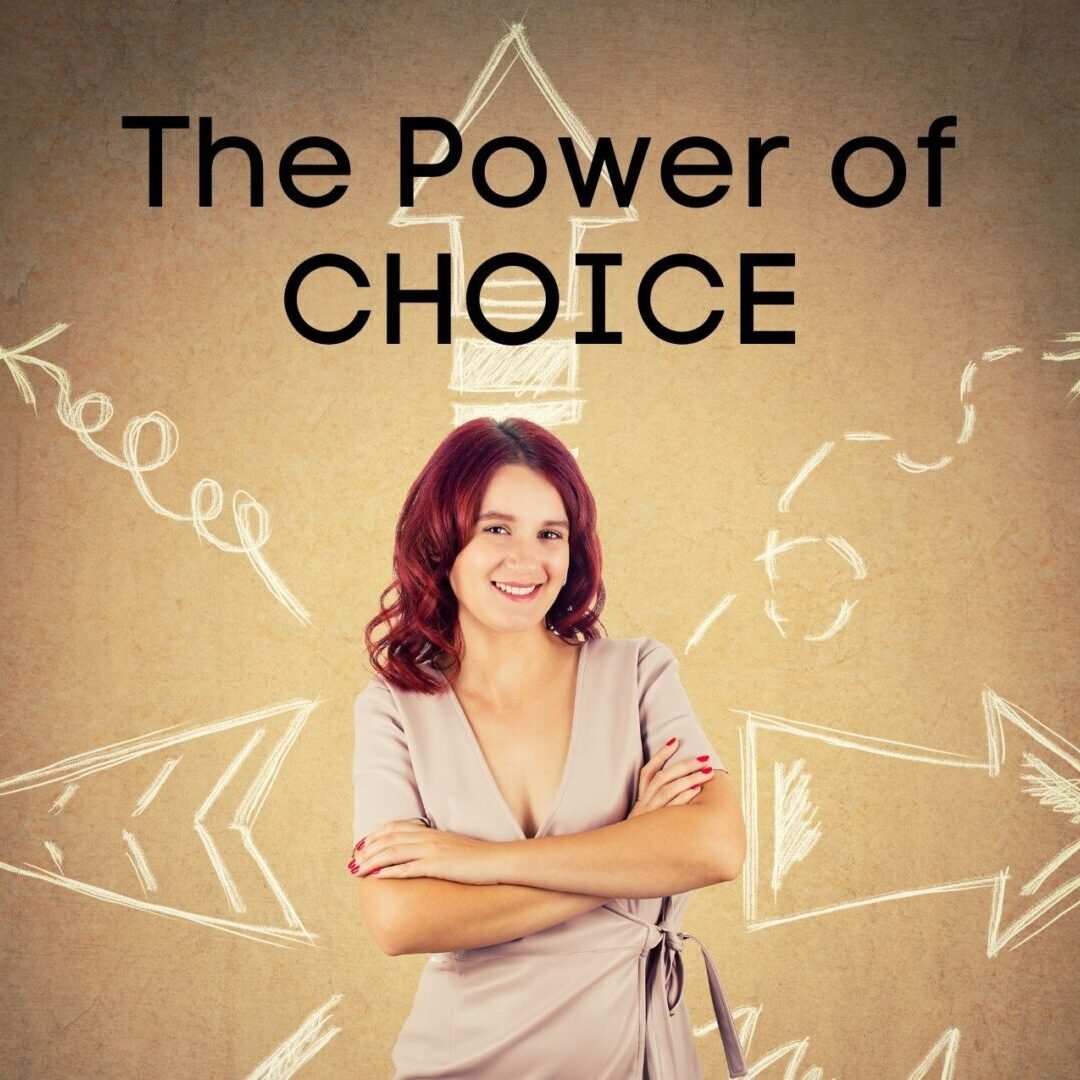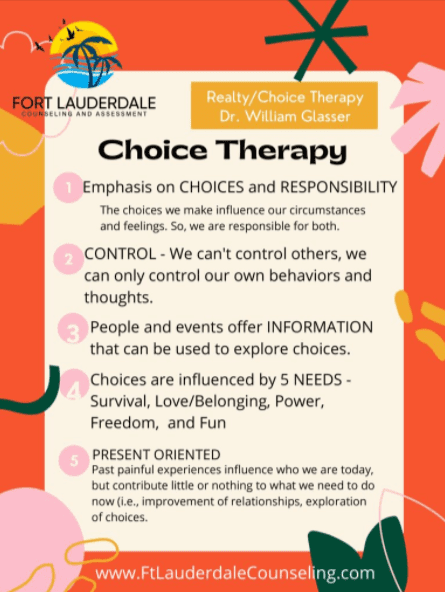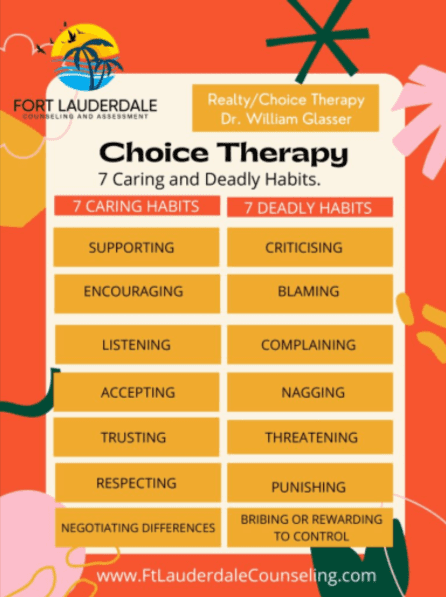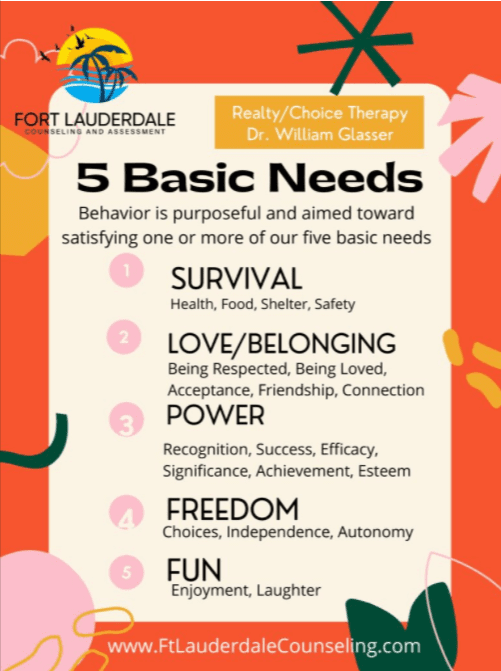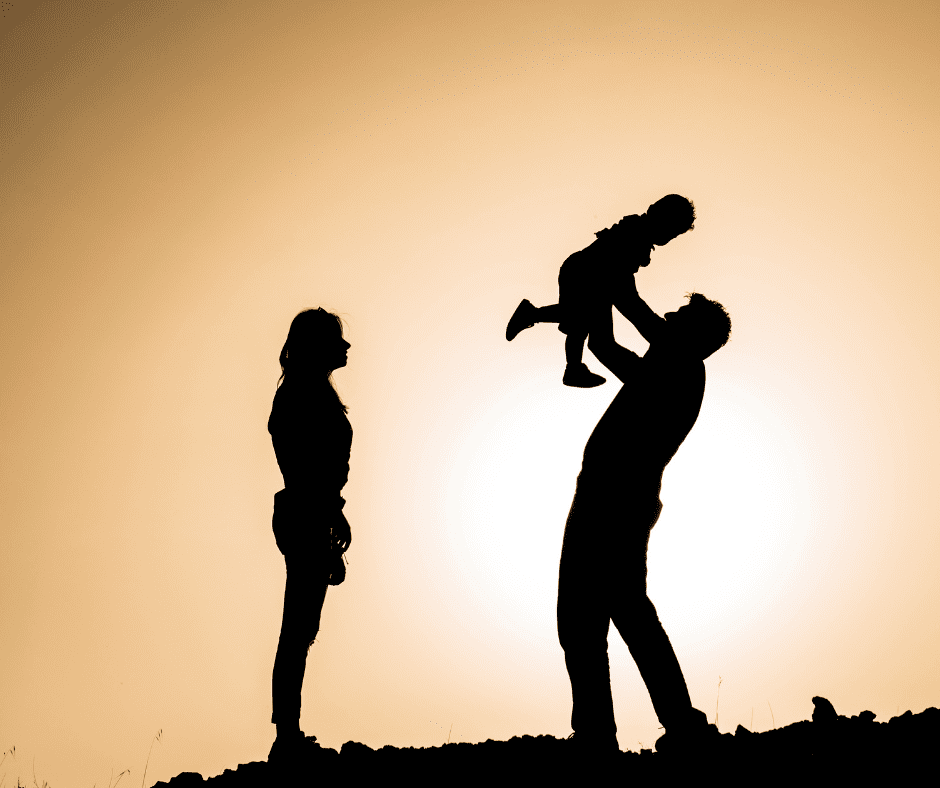Many go through life unaware of the choices that they make and the impact of these choices on their circumstances and emotional responses. Once we become aware of the choices that are within our control, we take back the power that was lost due to our lack of awareness.
Choice Theory, which was formulated by psychiatrist William Glasser, is based on the simple idea that every person only has the power to control themselves and limited power to control others. Applying Choice Theory allows an individual to take responsibility for their own life and at the same time, withdraw from attempting to direct other people’s decisions and lives. The more we try to control others, the more we choose to live our lives frustrated.
Things we CAN NOT control include:
- How others will treat you (e.g., with respect, kindness, compassion, or patience).
- If others will validate, sympathize, understand, or forgive you.
- Who loves you.
- Someone’s effort
- If someone will acknowledge you.
- If others will accept you.
Things that WE CAN control Include:
- Being kind, understanding, compassionate, respectful, or forgiving
- Walking away from unhealthy situations or relationships
- Asking for help
- Establishing boundaries
- How I view challenges
- The effort I put forth
By taking responsibility for our choices, we become responsible for outcomes as well (e.g., happiness, achievement, fulfillment). For example, if a person is in an unhappy marriage and he/she makes the choice to stay in the marriage without seeking help or actively working toward change, then he/she is choosing to be unhappy.
Another tenet of Choice Therapy is the understanding that people and events offer information that can be used to explore choices. The information available to us includes our feelings, other people’s past and present behaviors, and our circumstances. This information can be
According to Dr. Glasser, all behavior is purposeful. It is our best attempt at the time, given our current knowledge and skills, to meet one or more of our basic human needs, needs which evolved over time. These needs are the general motivation for everything we do.
1. Survival - This need is a physiological need, which includes the need for food, shelter, and safety. Because we have genetic instructions to survive, not only as individuals but as a species, this includes the need to reproduce.
2. Love & Belonging - This need and the following three needs are psychological needs. The need to love and belong includes the need for relationships, social connections, to give and receive affection and to feel part of a group.
3. Power -To be powerful is to achieve, to be competent, to be skilled, to be recognized for our achievements and skill, to be listened to and have a sense of self worth.
4. Freedom - The need to be free is the need for independence, autonomy, to have choices and to be able to take control of the direction of one's life.
5. Fun - The need for fun is the need to find pleasure, to play and to laugh. Glasser links the need for fun to learning. All of the higher animals (dogs, dolphins, primates, etc.) play. As they play, they learn important life skills. Human beings are no different, so have fun!!!
